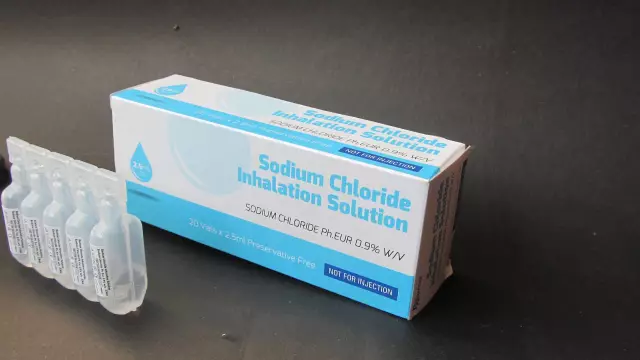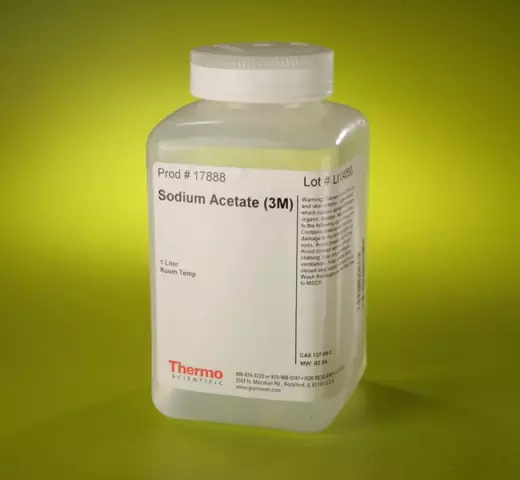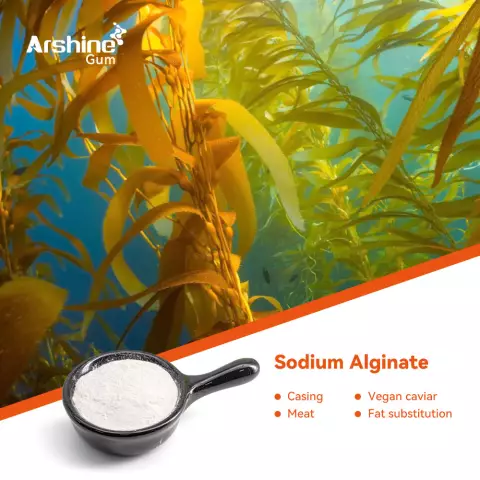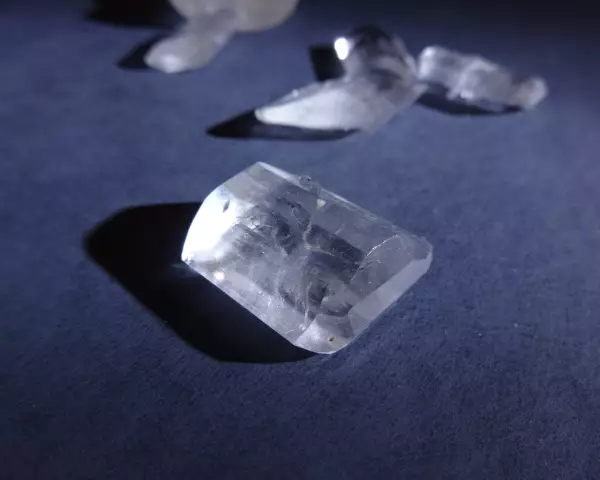- Author Rachel Wainwright wainwright@abchealthonline.com.
- Public 2023-12-15 07:39.
- Last modified 2025-11-02 20:14.
Sodium Nucleinate
Sodium nucleinate: instructions for use and reviews
- 1. Release form and composition
- 2. Pharmacodynamics and pharmacokinetics
- 3. Indications for use
- 4. Contraindications
- 5. Method of application and dosage
- 6. Side effects
- 7. Overdose
- 8. Special instructions
- 9. Drug interactions
- 10. Analogs
- 11. Terms and conditions of storage
- 12. Terms of dispensing from pharmacies
- 13. Reviews
- 14. The price of sodium in pharmacies
Latin name: Sodium nucleinate
ATX code: L03AX
Active ingredient: Sodium nucleate
Manufacturer: JSC "Biosintez" (Russia)
Description and photo update: 2019-31-07

Sodium nucleinate is a stimulant of leukopoiesis.
Release form and composition
Dosage forms:
- Film-coated tablets (50 pcs. In polymer cans, 1 can in a cardboard box);
- Powder for preparation of suspension for oral administration (0.5 g each in 10 ml vials, 50 vials in a cardboard box).
The active ingredient is sodium nucleinate:
- 1 tablet - 0.25 g;
- 1 bottle - 0.5 g.
Auxiliary components of tablets: potato starch, calcium stearate, low molecular weight polyvinylpyrrolidone, aerosil, refined sugar, beeswax, edible gelatin, titanium dioxide, basic magnesium carbonate, paraffin, sunflower oil, talc.
Pharmacodynamics and pharmacokinetics
Sodium nucleinate is obtained from baker's yeast by isolating RNA (ribonucleic acid) from yeast biomass and further purifying it from protein impurities. The result of such manipulations is a natural preparation of nucleic acids.
The tool has a wide spectrum of biological activity: enhances the production of interferons and phagocytosis; regulates the migration of T-lymphocytes; stimulates nucleic acid metabolism and leukopoiesis; increases nonspecific immunity in immunodeficiencies.
The drug accelerates tissue regeneration in case of trophic ulcers, ulcerative defects and ulcerative colitis, and also reduces the manifestation of allergic reactions.
Data on the pharmacokinetics of the drug are not provided.
Indications for use
According to the instructions, sodium nucleinate is used as part of the complex therapy of infectious pathologies occurring against the background of secondary immunodeficiency states:
- Chronic recurrent bacterial and viral infections;
- Chronic nonspecific lung disease;
- Secondary immunodeficiency states against the background of aging;
- Correction of agranulocytosis and leukopenia.
Contraindications
- The period of pregnancy and breastfeeding;
- Childhood;
- Hypersensitivity to drug components.
Instructions for the use of sodium nucleinate: method and dosage
Tablets and ready-made suspension are taken orally, after meals.
The recommended daily dosage is 1-2 g, taken in 3-4 doses. The duration of treatment depends on the severity of the disease and can range from 10 days to 1.5 months.
Patients of elderly or senile age with reduced immunity should be given 2 courses of treatment per year (in autumn and spring) at a dose of 1-1.5 g per day for 2-3 weeks.
Patients with leukopenia are prescribed the drug in the form of tablets at a dose of 0.25 g 2-3 times a day, the average course of treatment is 10 days.
Side effects
The use of the drug can cause the development of allergic reactions.
Overdose
No cases of drug overdose have been registered.
special instructions
The course of therapy is shown to be repeated 2-3 times a year, including the treatment of chronic diseases.
Drug interactions
With simultaneous use with other drugs, a clinically significant interaction has not been established.
Analogs
Analogues of sodium nucleinate are: Leucogen, Methyluracil, Pentoxil.
Terms and conditions of storage
Keep out of the reach of children.
Store in a dark, dry place at temperatures up to 25 ° C.
Shelf life is 2 years.
Terms of dispensing from pharmacies
Dispensed by prescription.
Reviews of Sodium Nucleinate
Despite the development of the pharmaceutical market and the emergence of new effective drugs, sodium nucleinate is still widely used. More than 52% of patients showed positive results.
Immunological studies have proven the effectiveness of the drug in the complex therapy of systemic lupus erythematosus. When applied, the concentration of immunoglobulins G and circulating immune complexes decreased, the number of lymphocytes increased, and neutrophils became more active to phagocytosis. The beneficial effect was noted in 92% of cases, which is confirmed by the positive reviews about Sodium Nucleinate.
Price for Sodium Nucleinate in pharmacies
The drug is quite expensive and not available in all pharmacies. The price of Sodium Nucleinate ranges from 1,700 to 2,000 rubles (for a package of 50 tablets).

Maria Kulkes Medical journalist About the author
Education: First Moscow State Medical University named after I. M. Sechenov, specialty "General Medicine".
Information about the drug is generalized, provided for informational purposes only and does not replace the official instructions. Self-medication is hazardous to health!






